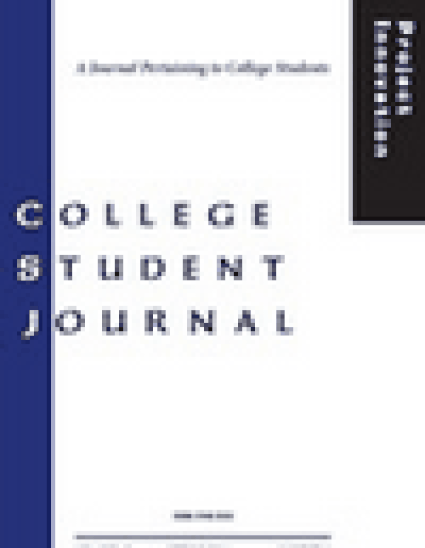
Article
Student Self-Efficacy in a Chosen Business Career Path: The Influence of Cognitive Style
College Student Journal
(2015)
Abstract
An important dimension of university students' academic success is retention in their chosen major. When students do switch majors or interrupt their education, it is largely due to their lack of confidence about doing well academically, as well as perceived chances of success in the career area related to university major. A term often used for this confidence is 'self-efficacy'. The present study measures closeness of fit between a particular student and the general population of students in his or her major on a dimension of personality known as 'cognitive style'. A measure of cognitive style known as the Kirton Adaption-Innovation Inventory is used to measure a sample of 247 upper level university business students along this dimension. The same students were then given an instrument to assess self-efficacy in the areas of chosen major and intended career. Subjects' cognitive style varies systematically among majors, possibly due to self-selection of each subject into a major which is perceived to match his or her cognitive style. Self-efficacy related to major choice was found to vary systematically among subgroups, and possible explanations are explored. Self-efficacy relating to the associated career path does not vary systematically among subgroups.
Keywords
- Academic success,
- Self-efficacy,
- Kirton Adaption-Innovation Inventory
Disciplines
Publication Date
Fall 2015
Citation Information
Arthur L. Sherwood, Joseph T. Harder and Alan Czyzewski. "Student Self-Efficacy in a Chosen Business Career Path: The Influence of Cognitive Style" College Student Journal Vol. 49 Iss. 3 (2015) p. 341 - 354 Available at: http://works.bepress.com/arthur-sherwood/1/
